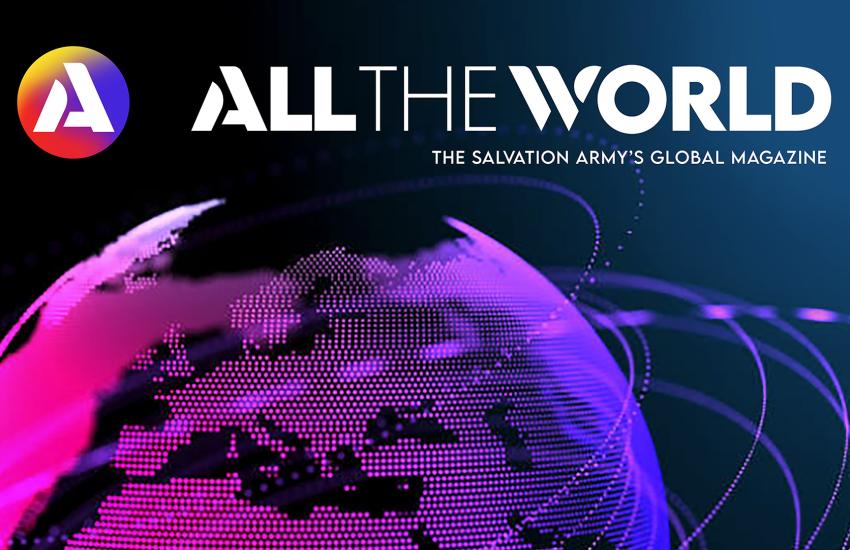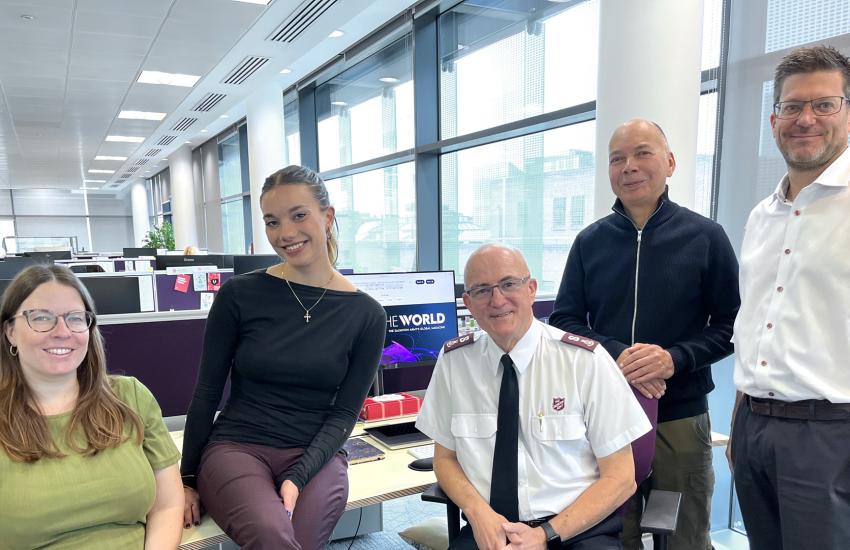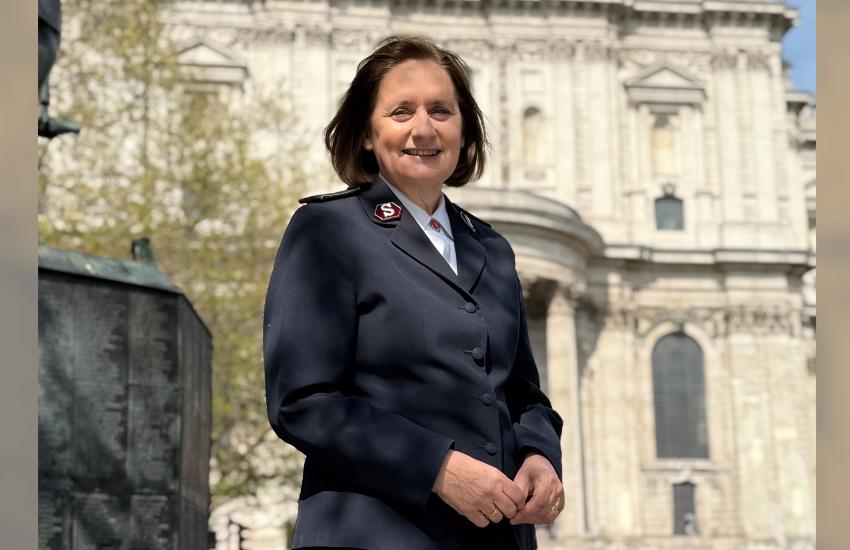A delegation of more than 15 Salvationists – from Zimbabwe, India, Kenya, Myanmar, Australia, Hong Kong/China and the International Headquarters Health Services facilitation team – along with representatives from the Africa and Asia-Pacific facilitation teams, attended the 15th International Conference on Aids in Bangkok, Thailand. The Salvation Army group was a small but significant presence among the 15,000 delegates.
Sessions on Religious Leadership and Christians Responding to Aids were stimulated by forthright comments from Dr Mirriam Cepe, The Salvation Army's Asia-Pacific Regional Coordinator. In reply to the assumption that Christian responses have been slow and judgmental, she highlighted the Salvation Army approach of stimulating responses in local communities.
This theme was echoed in an interview conducted with the Army's International Health Services Coordinator, Dr Ian Campbell, by the Australian Broadcasting Commission. ‘Our approach is to help communities make healthy choices about life,' he said.
The Salvationist group met each day to go over key points and pray, but the decision was made from the start that more influence would be had if group members participated in as many sessions as possible. Many good contacts were made, and conversations outside of sessions were probably more significant than the sessions themselves in terms of building relationships with colleagues from international and national organisations. The international and regional teams benefited through meeting colleagues and friends from all parts of the world, including national and international policy-makers.
The Salvation Army's international team co-hosted a symposium prior to the international conference, along with the Aids Competence Programme, which is based at the United Nations Institute for Training and Research (UNITAR). The director of UNITAR affirmed the dedicated and sustained commitment of The Salvation Army to the Aids issue.
The Knowledge Fair was a product of the partnership efforts of The Salvation Army with the Aids Competence Programme and UNITAR and UNAIDS, along with the petroleum company BP. April Foster, of the Africa facilitation team, was one of the two main leaders of this event, which was attended by 130 people from more than 30 countries.
Of the many strategy and networking discussions, one of the most significant was a meeting with representatives from an international Christian organisation called Opportunity International and the international pharmaceutical company, GlaxoSmithKline.
Nikki Capp, a Salvationist from Camberwell in Australia, successfully brought about a collaboration between potential partners. This might emerge as a unique opportunity to increase access to antiretroviral treatment through Salvation Army health facilities and corps in at least 10 countries where smaller amounts of anti-Aids drugs are already available through government sources. It is urgent that thousands of families and communities have access now, and the possibility of this happening soon is more hopeful, though there is much work to be done.
The participation of The Salvation Army in the International Aids Conference was an opportunity to influence policy and practice. Some of the contacts made will increase opportunity, confidence and competence in many territories where strenuous efforts are being made to respond to the catastrophic impact of Aids.
The Salvation Army experience is that personal care leads to better quality and quantity of prevention. 'We will continue to demonstrate this,' affirms Dr Ian Campbell, 'and will seek to accentuate this link through integrating antiretroviral treatment with existing care and prevention approaches. Yet we need to recognise, along with many other international organisations and churches, that money and other resources have decentralised largely to country level. Money is easier to access there, and it is harder to obtain funds for international programme support efforts. We will play our part locally and continue to influence global policy through our actions as well as our words.'
Salvationists play significant role at international Aids conference
Discover more

The Salvation Army celebrates the launch of new online magazine
A redesigned and reimagined All the World is now live!

A brilliant idea
Major Peter McGuigan writes about All the World and introduces its team

The core of the Christian faith
After 1,700 years, the Nicene Creed is still relevant today

Five minutes with... Fernanda Rivera
From Mexico City to global platforms, Fernanda Rivera is a passionate advocate for youth inclusion and blends faith, activism and community to empower young voices. In this Q&A, she shares her daily work, spiritual journey and her hopes for the

Be yourself, be available
Major Peter McGuigan sat down with Commissioner Jane Paone, The Salvation Army’s Secretary for International Ecumenical Relations, and discovered a story for the ages
A magazine for the ages
Commissioner Ted Horwood introduces The Salvation Army’s new digital All the World